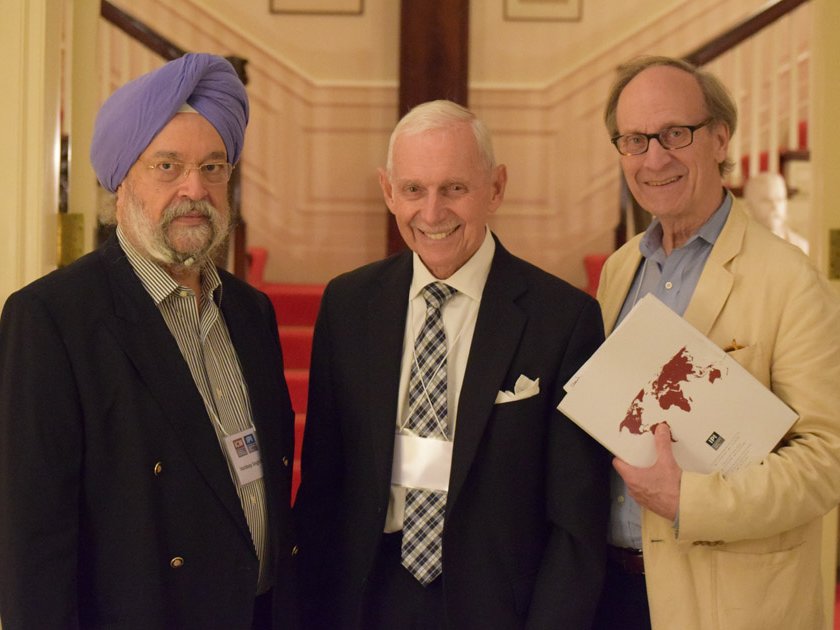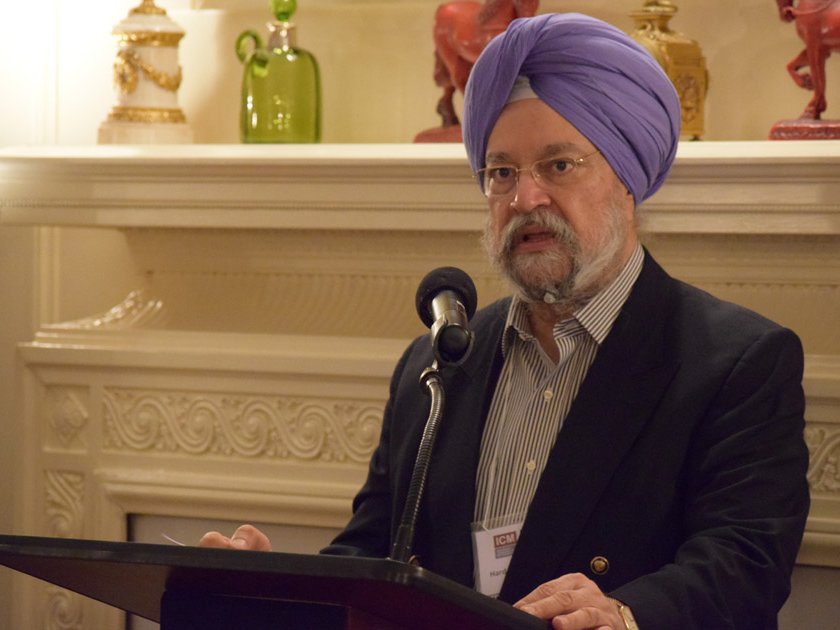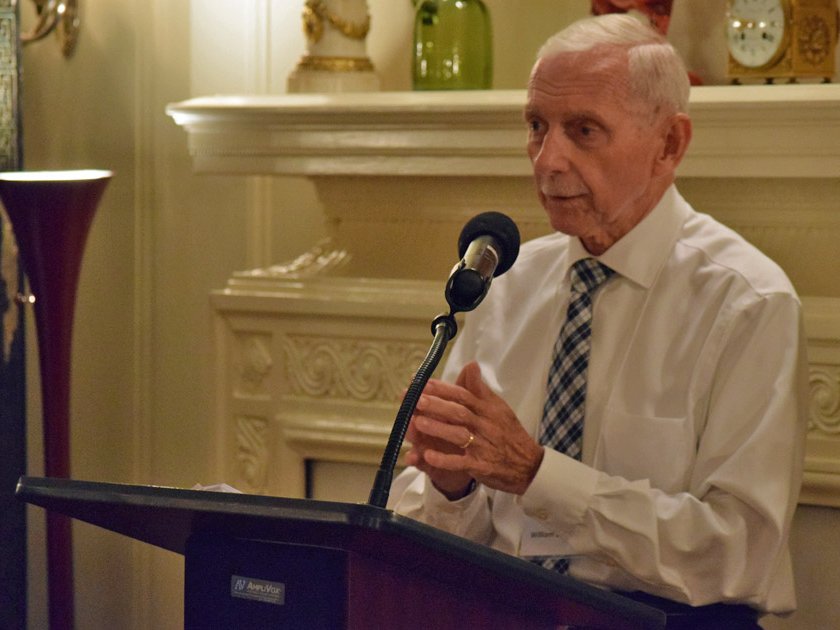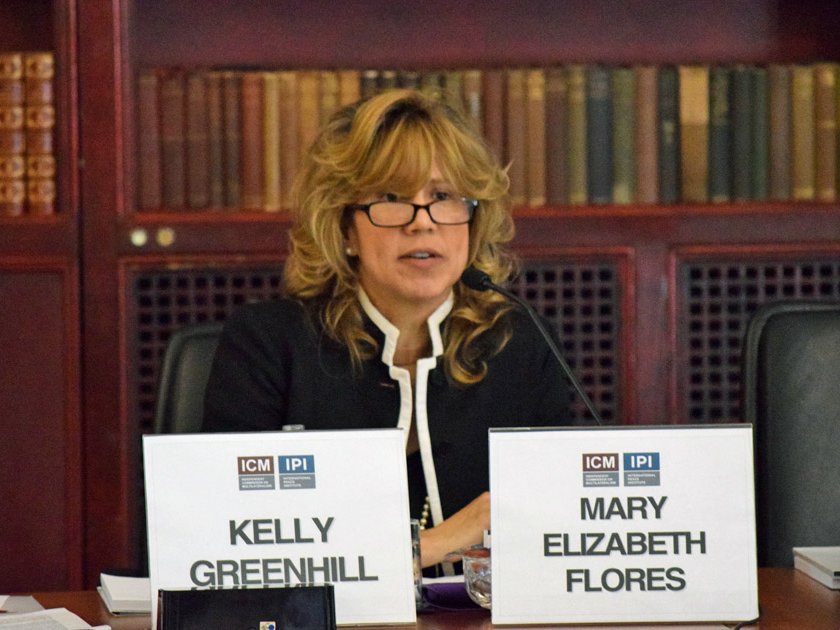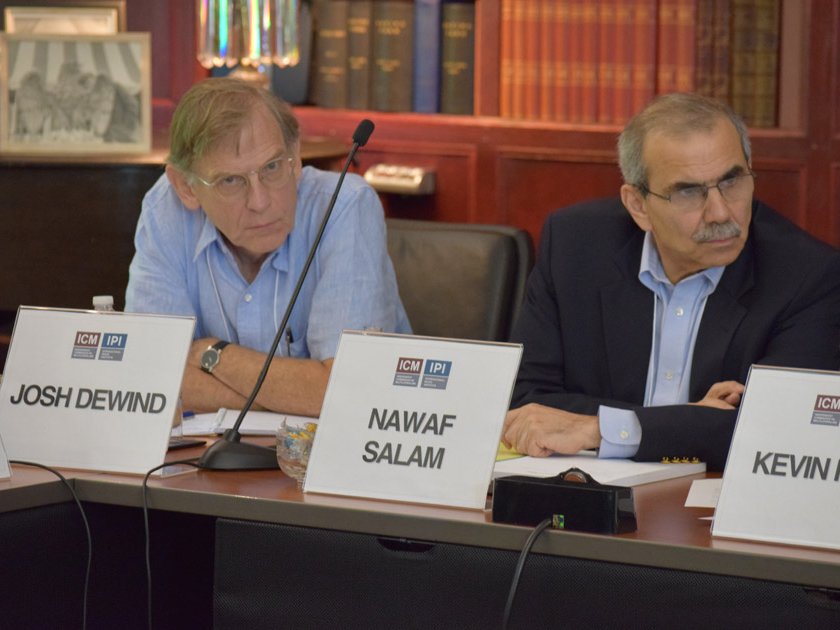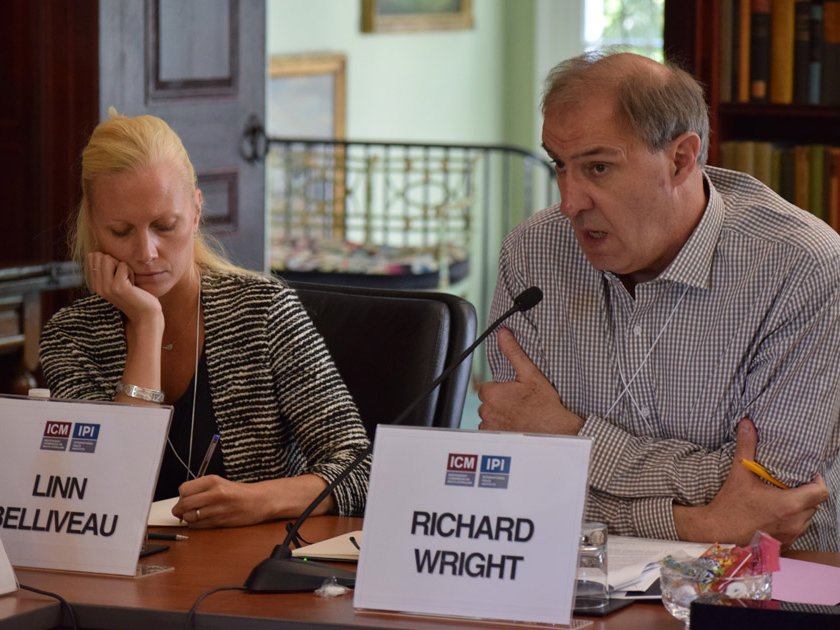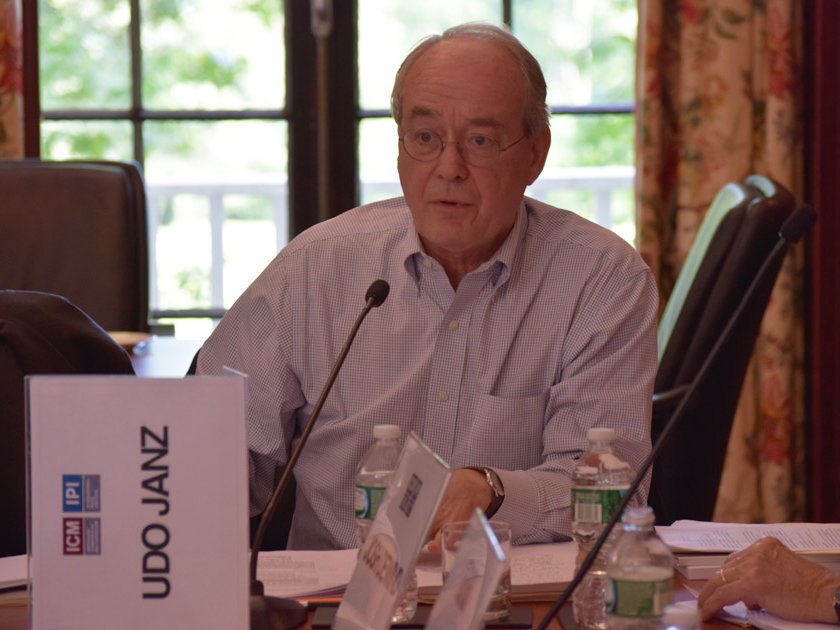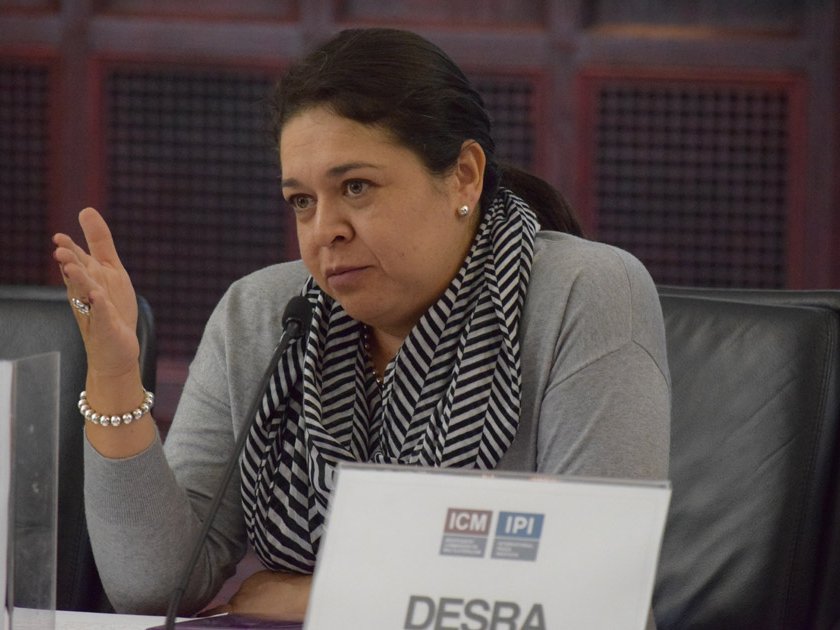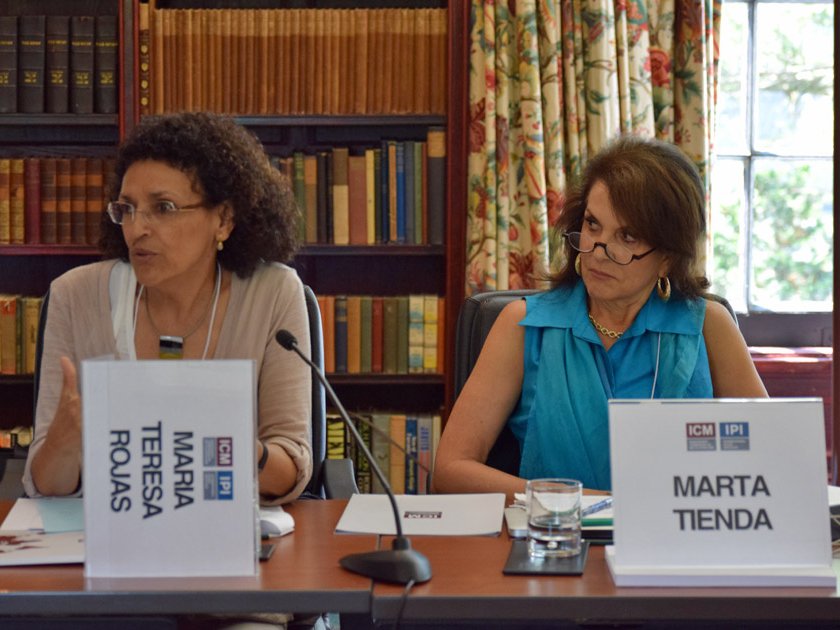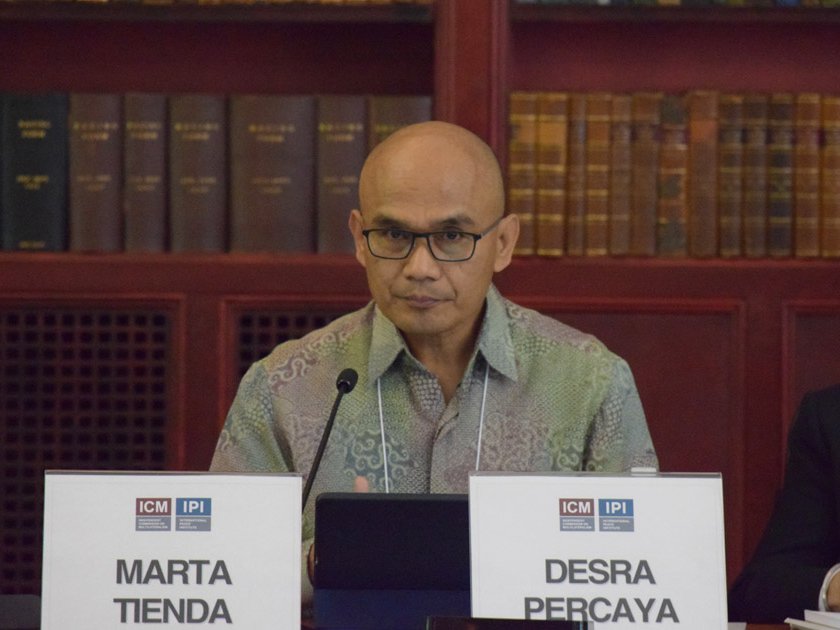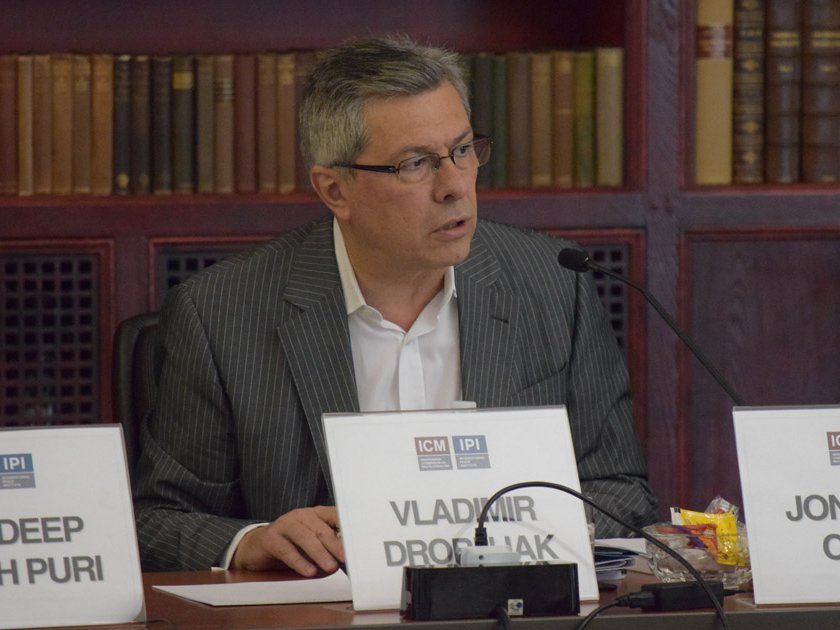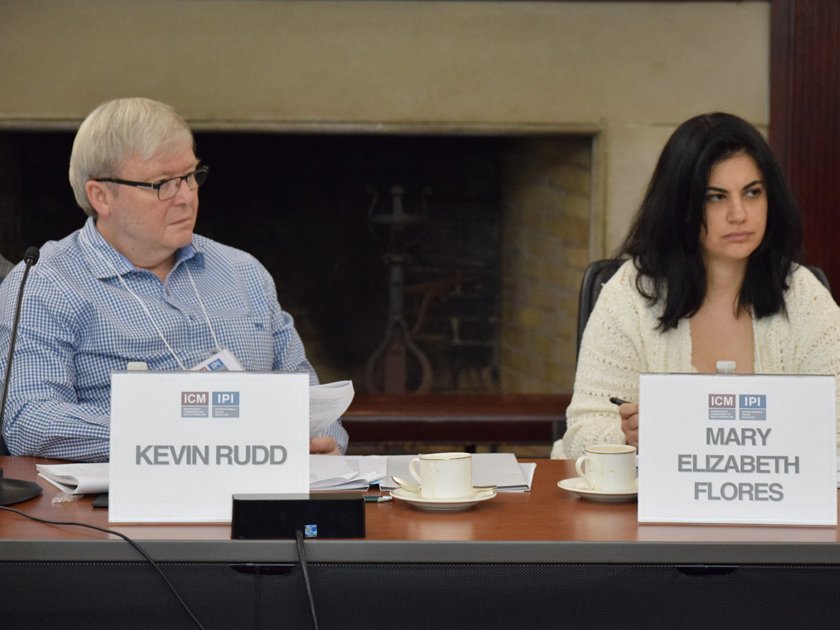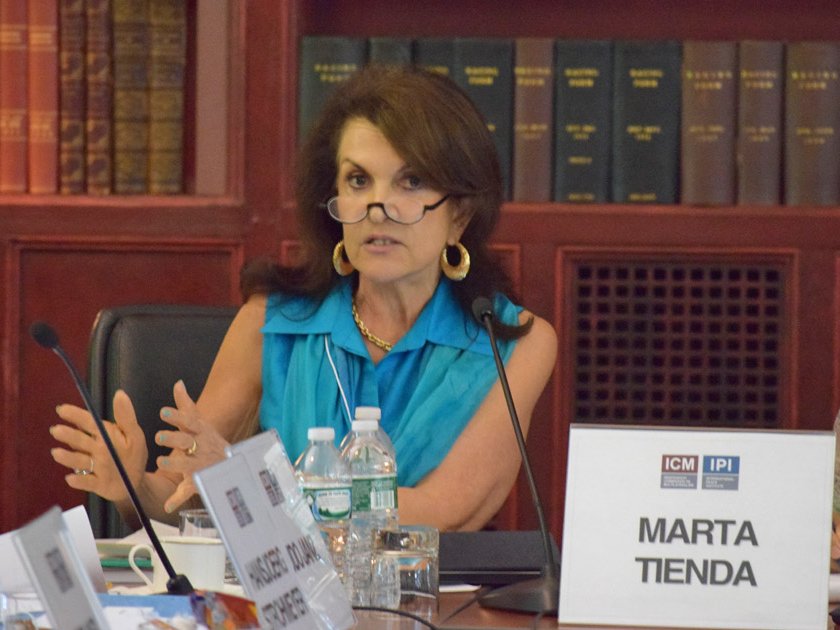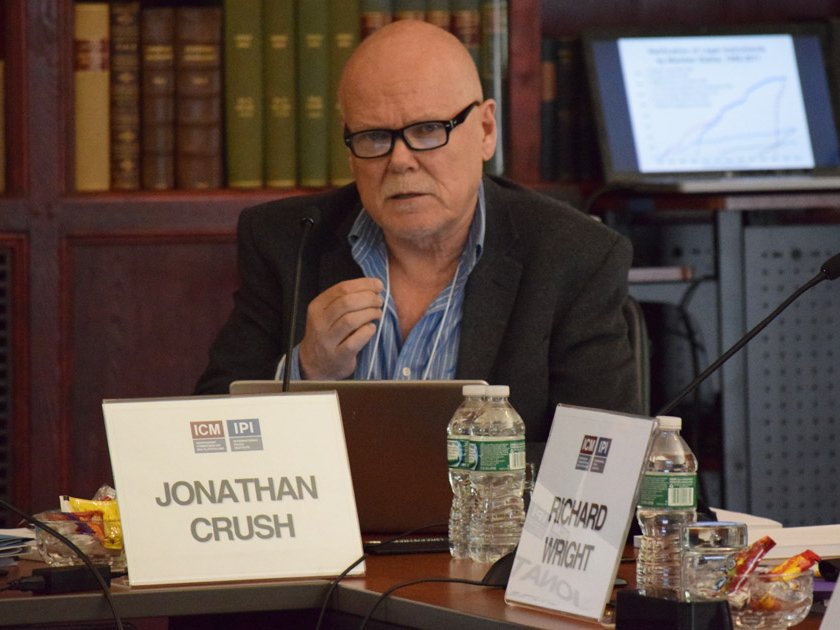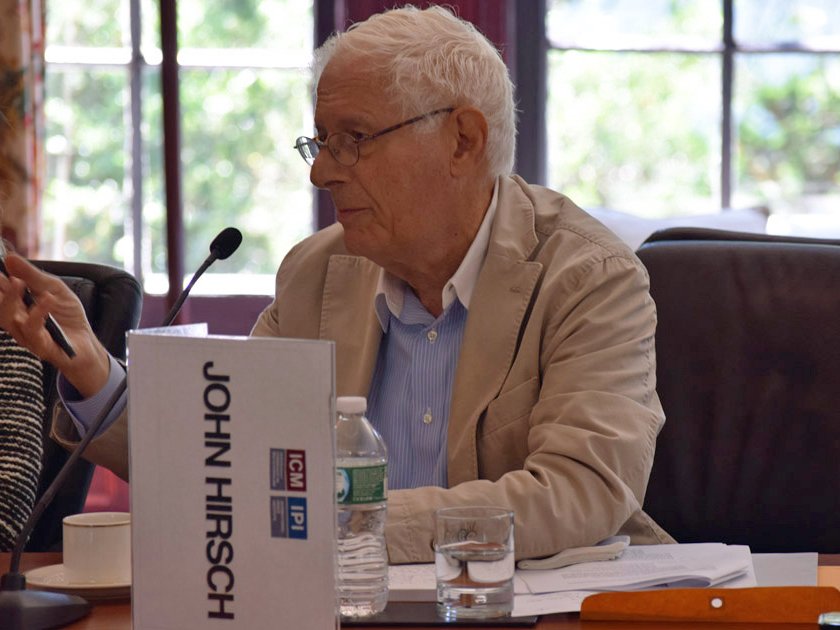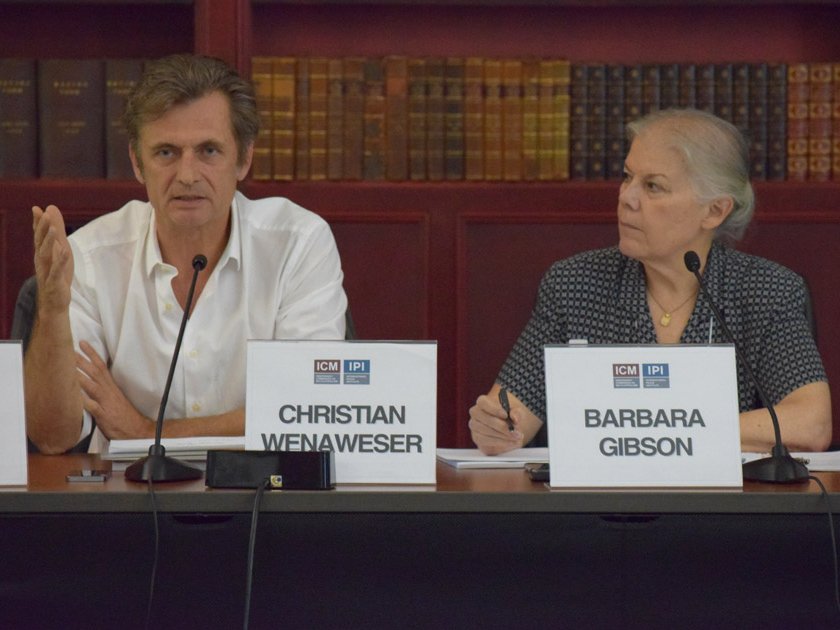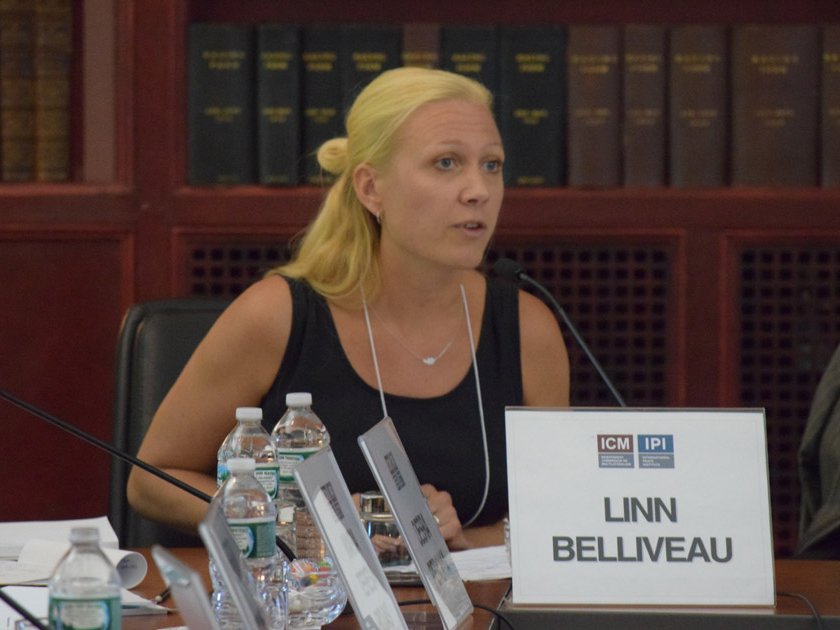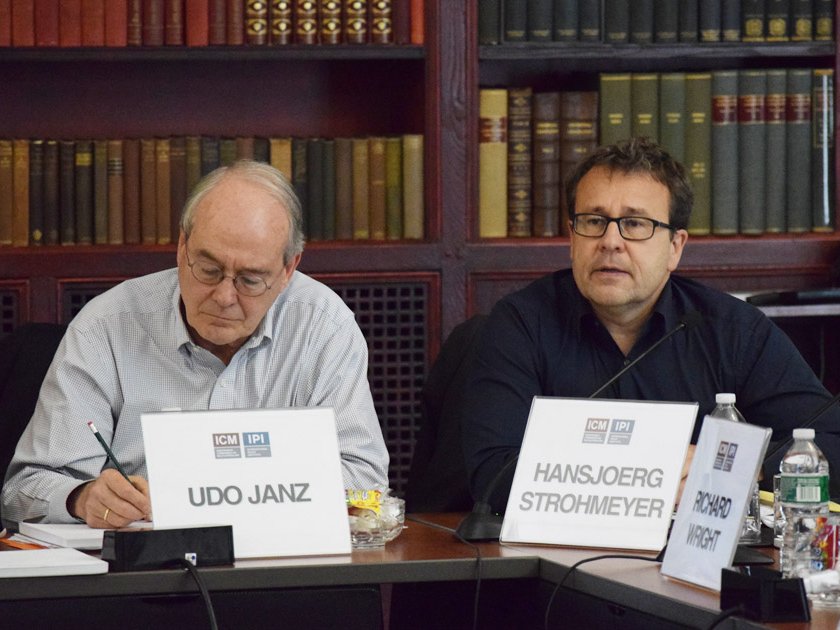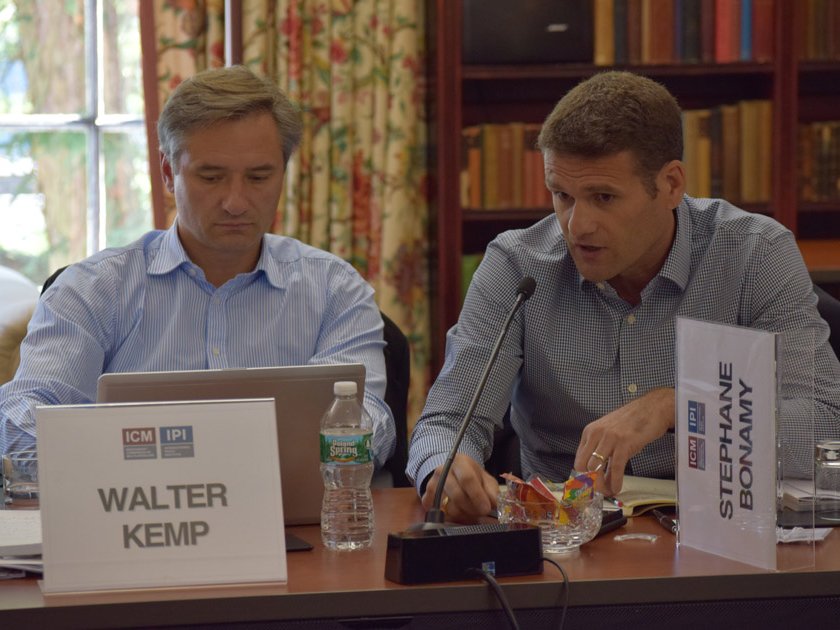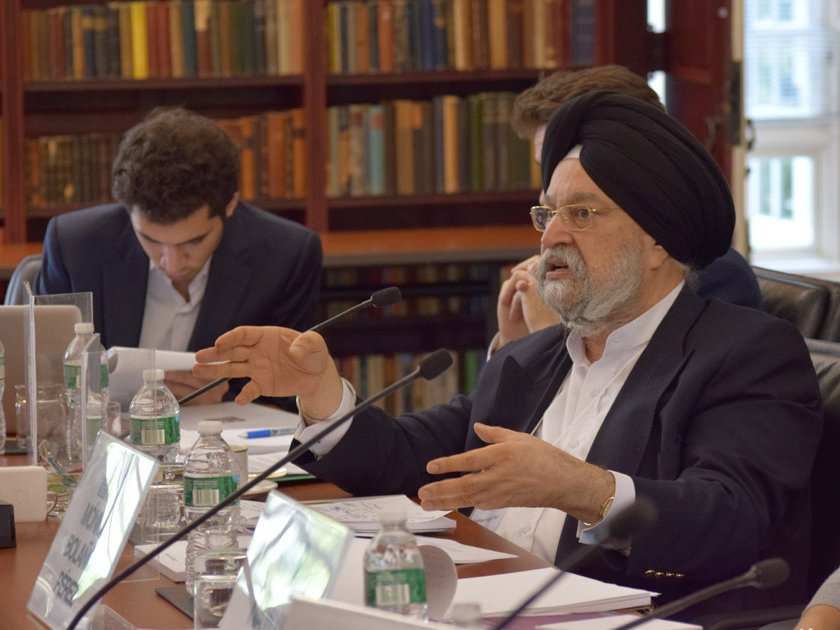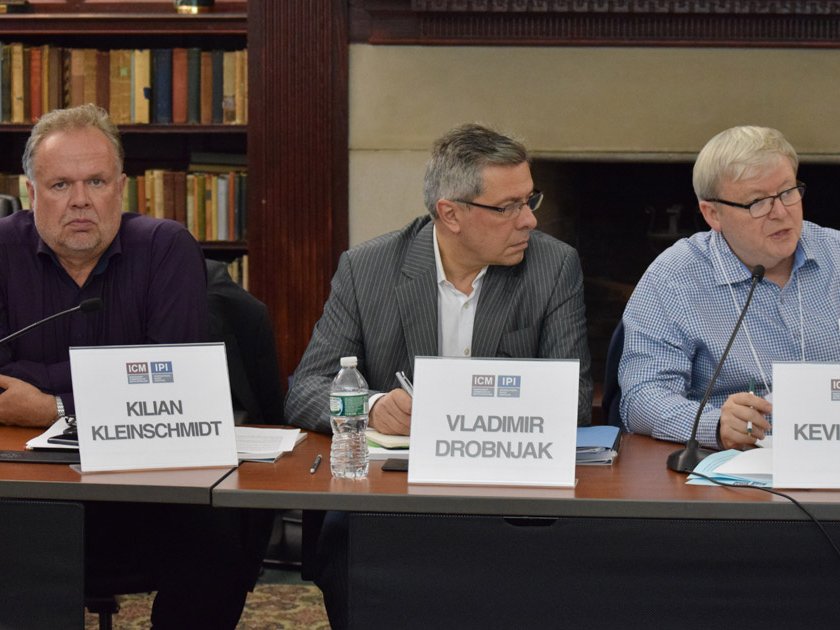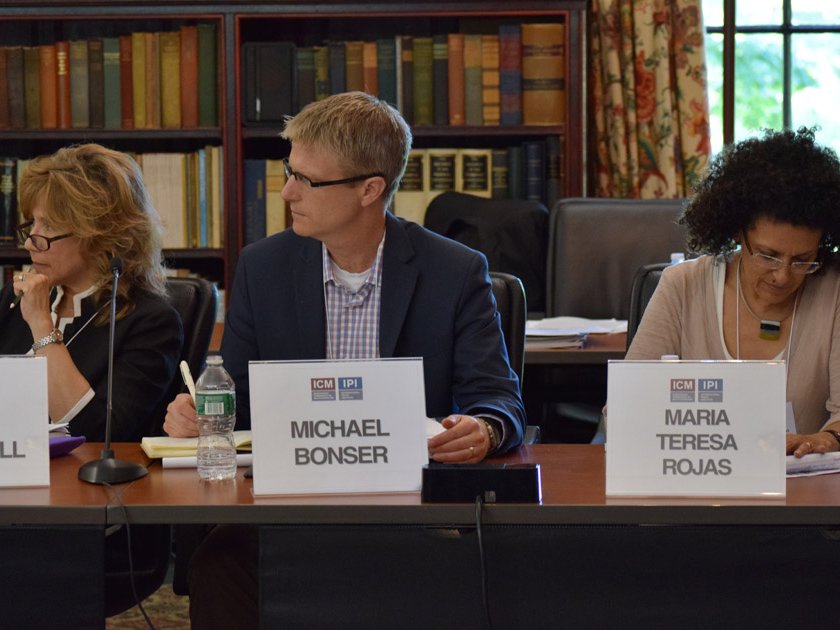Among the major crises of today is the unprecedented rise of forced displacement, refugees and migration flows. By the end of 2014, approximately 60 million people have been forcibly displaced compared to 51.2 million a year earlier and 37.5 million a decade ago. In every region of the world, the numbers of refugees and internally displaced people are on the rise, and the ripple effects have been global.
Can the multilateral system strengthen global solidarity and promote shared responsibility to address mixed migration flows? This was a key question at the ICM’s sixth retreat, held on June 10-11 under the Chatham House Rule of non-attribution.
Ambassadors, experts, and academics representing governments and civil society organizations analyzed the issue around three sessions. The first discussed the current crisis, focusing on the root causes, and examining the increase of mixed migration flows and their political, economic and moral costs. The second session addressed how regions are coping with the rise of mixed migration flows and the political risks and incentives for receiving states to change their policies. The third and last session assessed the existing multilateral framework dealing with mixed migration and what steps can be taken to strengthen the system to better respond to the current crisis.
Discussions were moderated by ICM Chair Kevin Rudd, ICM Secretary-General Hardeep Singh Puri, and ICM Senior Adviser Barbara Gibson. His Excellency William Lacy Swing, Director General of the International Organization of Migration, gave the keynote address.
Read about the Public Consultation>>
Read the ICM Interviews with:
David Miliband
William Lacy Swing
Linn Biorklund
Udo Janz
Kelly Greenhill
Kilian Kleinschmidt

